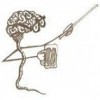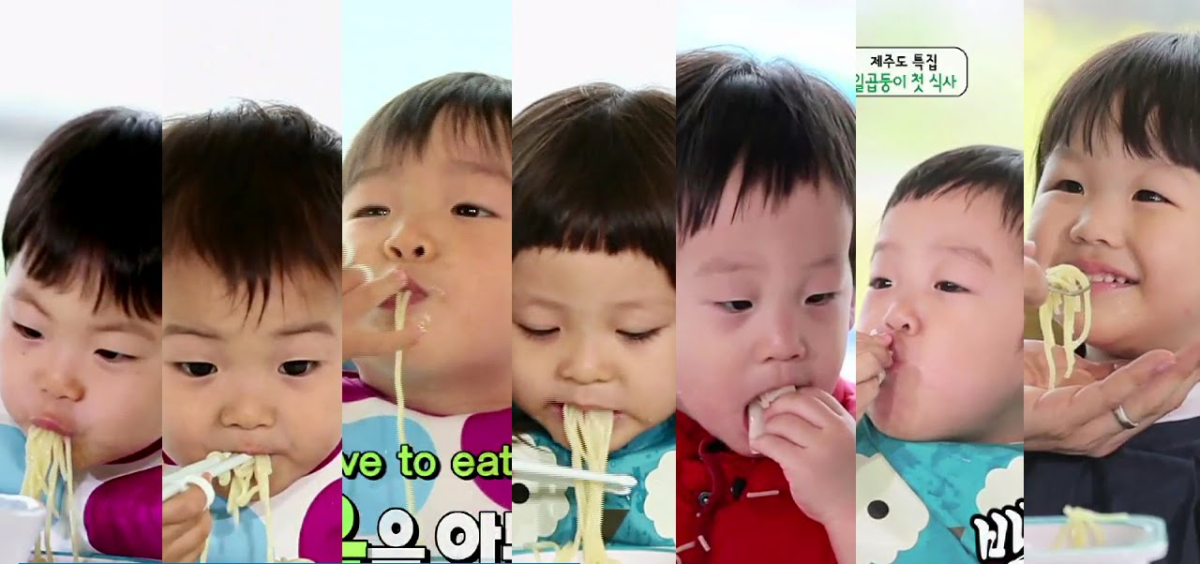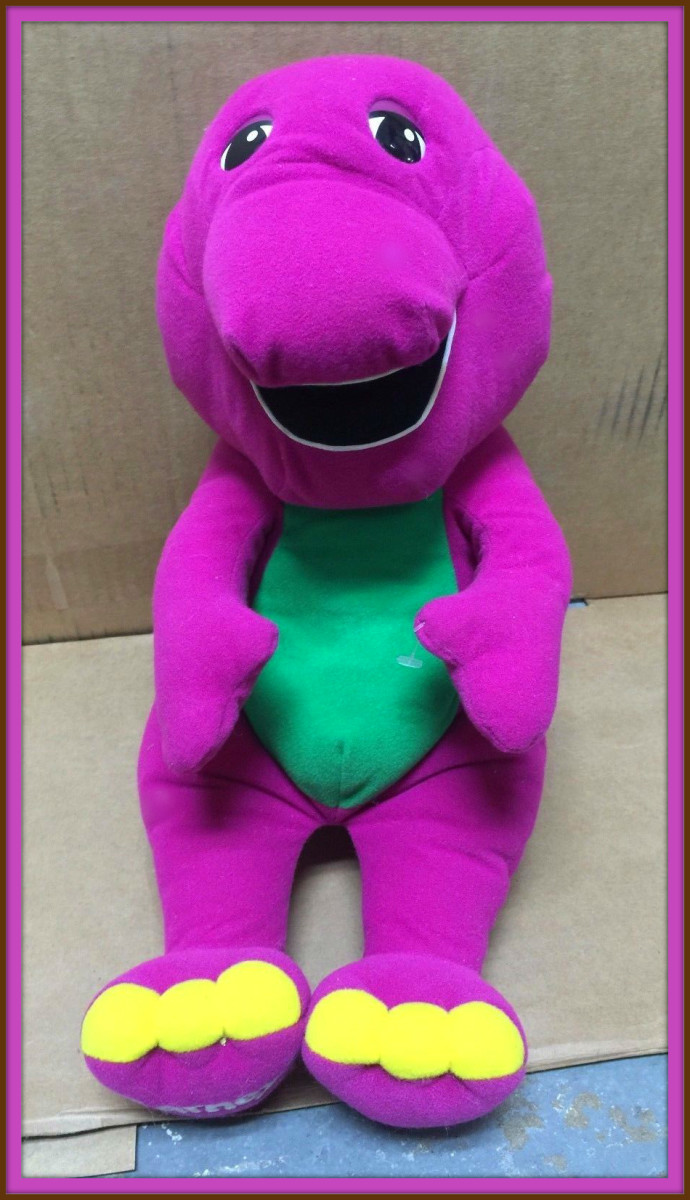Stop Neutering Our Kids: Protect Children by NOT Protecting Them So Much
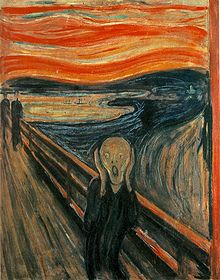
Do we over-protect our children?
There comes a time when you can protect too much. That time is now. Americans have loved and protected their children to the point that they are, in essence, neutering them. Even the girls. Now, if you think about that for a moment, you will realize how dire things have become when we are actually neutering our girls. That’s seriously hard to do, and yet, here we are, U.S.A. 2010.
Perhaps in the wake of WWII where so many folks lost their children, and where so many folks survived horrible things and learned new value for life, and where existence was funded by the diligence and work ethic that was not only born from the resolve and momentum of that great victory but also underpinned by financial discipline rooted in the Great Depression, those Americans gave birth to kids that did pretty well for themselves: a generation of people that were given everything by parents who truly, deeply and universally recognized the fragility of life and of the economy, and who found a fantastic balance between discipline and adoration for their babies.
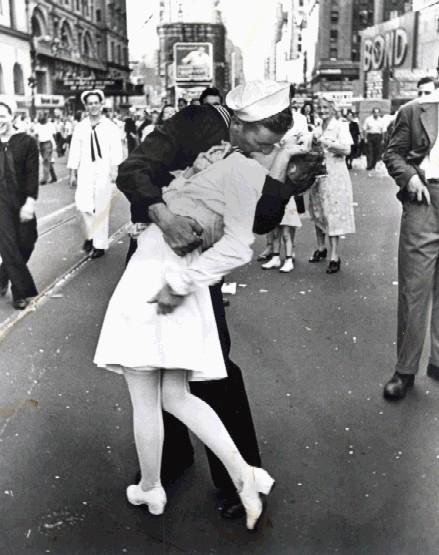

These post war children were so confident and well grounded that they were willing to face the problems around civil rights, take risks, fight. They opened up opportunities for everyone and they did it while listening to rock and roll and smoking pot and humping anything that moved. They were out there, doing stuff, taking a different kind of risk than their parents, even defying their parents, as they grew up and boldly lay claim to their time and their place in the world.
They grew up and had kids and watched as technology exploded in an incredible computer age. Cable television gave us CNN effect and a 24 hour news cycle that could cover not just Somalia or Sarajevo over and over, but the kidnapping of a single child in a state thousands of miles from us over and over and over, letting us see and think about the horrors of losing a child to a pedophile or murderer repeatedly, grinding into our minds and collective unconsciousness the reality of child abduction as a real and legitimate possibility as if it had actually happened in our state, town and neighborhood repeatedly rather than to the one child the story was about—and no matter how remote and amazingly unlikely statistically such a thing was, and completely ignoring actual crime figures and other real data that might give peace of mind as they continued to improve.
We watched as the tobacco industry went under siege, and we were happy to watch lying a-hole corporate executives get called out for their lies. We saw images of black lungs, and cancer tumors and of bald people dying in the misery of a chemo fight, weeping amongst their families and dying terrifying deaths before the attentive cameras of charities who have lobbyists and PR departments like corporations do. We watched it, the commercials and specials and events and day time shows, the walks and rides and whatever-athons. We watched them all, over and over, participated in them, heard the messages on the radio, saw the billboards, learned it all at school. We got it all the time. Constantly.
We were told to put on our seat belts by parents who grew up climbing around on the rear dash and mashing their faces against the glass, sticking their tongues out at truckers and begging them to honk their loud, chromed air horns. We were told to buckle up. Given death counts. Watched “Red Asphalt” and gory videos. We get endless reports on the news, all day, every day, showing mangled vehicles, stories of dead babies and dismembered limbs. Lost fathers. Lovers forever gone away. Death on the highway. Guilt.
Don’t drink and drive. That was a big message too. A huge campaign. Drunk drivers kill tons of people every year. We all know someone who died that way, or at least know someone who knows someone. The commercials are on TV. All the time. On billboards and the radio.
YOU WILL DIE!
YOU WILL DIE!
YOU WILL DIE!
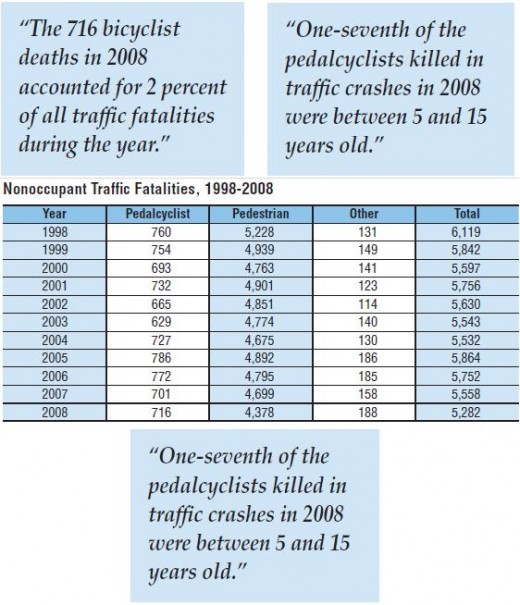
We have statistics for how many people die in bicycle crashes. STATISTICS. It’s not a very big number, but if it is someone you love, then ONE is an enormous number. So worry is totally justified. Put a helmet on. Put one on your precious babies. Warn them of the danger. Make sure that they know they are in danger.
Make sure your baby NEVER sleeps on its back, “It will die." That's what they told us in the Seventies and Eighties.
Make sure your baby NEVER sleeps on its stomach, they tell us now. Your baby will DIE of SIDs.
It’s safety.
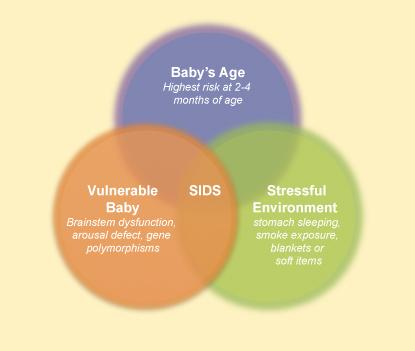
It’s common sense to wear a helmet when you ride a bicycle. Just like how many states make people wear helmets riding motorcycles too. It’s important to make people do things that are safe. Tell them not to smoke. Not to drink. How to place their baby when it sleeps. Statistics are important to keep front of mind. Always. Put them everywhere. Terrify the drivers and the smokers. Terrify the parents. Make sure small children who don’t have a grasp of degrees or the perspective to process information know that they are vulnerable and have to take lots of precautions so they don’t get hurt or die. Tell them not just with the action of scared parents putting helmets on them when they ride and buckling their seat belts, but keep them aware of danger on the radio, television and billboards they see. Don’t let them see violence in TV shows. But do let them see their parents acutely aware of it.
Make sure they are afraid.
Neuter them. Even the girls.
How did our species even MAKE it to this point in history if we’re this goddamn fragile? How did our primitive monkey ass ancestors survive sabretooth tigers and mastodons and buffalo hunts and wolves and snakes and spiders and harsh weather and privations galore? How did our species even make it this far. And now that we’re here, is it really worth it to die at 85 in agony, doped to dull the pain of the whole body cancer we avoided in our sixties because we didn’t smoke? Or just wilting in some bed, alone with the smell of our piss, wondering if our kids will show up this week or next, unless we’ve forgotten them, in which case we’re just alone. Withering.
Is living that long our reward?
Better yet, how do we survive even to thirty or more? If you are thirty or so, how did you survive drunk drivers? Your dangerous bicycle? The lurking predators hiding in every bush of your neighborhood? The lead toys and the death trap of your crib (or bassinette or dresser drawer)?
All I know is, despite the fact that all of us are alive that aren’t dead, we are acting like we somehow narrowly escaped some gamut of near death experiences that can now be avoided by hyper-reactive safety measures. We’re making our kids into wussies. Driving them indoors.
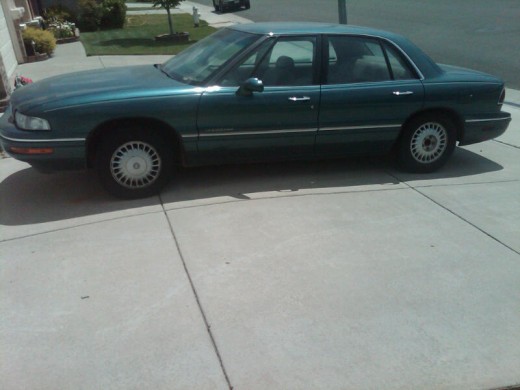
Speaking of driving, I haven’t funded a formal survey, but I can tell you anecdotally that I have three kids, none of whom got their driver’s licenses at age sixteen. One did at seventeen (late into it), another is now eighteen and still has no interest in it, and the youngest is seventeen and shows little interest either. The classes have been paid for, the driving instructor paid and contracted, and I even have a “practice” car (a ’92 Buick Le Sabre) for them to drive – nice big thing that I don’t care what they bump into as they get their driving feet wet.
But they don’t care. It doesn’t matter. They just don’t do it.
So maybe I’m just a bad parent. This whole rant inwardly focused on something I did to make timid kids.
So how come out of all their friends, none of them drive either? NONE of them. Okay, one; my daughter has ONE friend that got a driver license at seventeen. Nobody else gets them. Not till they’re eighteen or… well, who knows when, since none of them have them yet even that are eighteen. I actually have listened to some of their parents bitching about it when they drop their kids off at our house for visits or whatever. It’s not just me.
I bitch about it too. But, hey, maybe that’s our fault. If we didn’t drive them around, then they would be forced to get a license if they wanted to go somewhere. Us driving them around is enabling their lack of motivation.
Well, besides the fact that I can’t imagine why a teenager wouldn’t want this kind of independence given that being independent is supposed to be the core driver behind the teenage experience, we already tried that, cutting them off from a ride. They don’t care. They’ll just stay home. It’s not a big deal. Or they’ll get a ride from someone else’s parents. We’re all conspirators in this.
Or else they just hang out online. They like that anyway. All the indoor safe time has really given them a strong attachment to it.
“Wait,” you might be thinking. “That’s still on you! Take away their Internet too!” Maybe that would work. Except I tried it. Nothing.
Maybe I am a crappy parent who made timid kids, and perhaps those types flock together with other timid birds. Maybe it is just me. My anecdote doesn’t count. My fault and the fifteen or so families like mine bound by the flock-like friendship of our frightened kids.
Fair enough. So why are the people I work with complaining about this? Why are all the parents I’ve talked to at work bringing up this frustration of having teenagers who won’t drive on their own? Why does this come up without me mentioning it at all? Am I actually putting out some sort of unmotivated-driving-teenagers gravity thing that is pulling timidity-breeding parents into my work sphere, dragging them to me like some sort of bad parenting black hole?
Perhaps. But I’m willing to write that off as too unlikely for serious consideration. Which means it is something else. Something cultural. Something born of all that stuff I talked about before. The fear. The terror. The constant, incessant, endless messages of death and danger lurking in absolutely everything we do. The lead paint. The lead toys. The booze that kills. The drugs that kill. The terrorists that kill. The bicycle crashes that kill. The everything that kills and leaps out of bushes or confessionals to do damage to children.
No F-ing wonder they don’t want to go outside.
We’re neutering our kids. We should stop.
Based on 67,000 million children in the U.S. at the time of the survey. Quote: “From the survey of law enforcement agencies, NISMART concluded that indeed the number of stereotypical kidnappings occurring each year numbered only between 200 and 300.” (Finkelhor 943)
That’s a 1 in 223,333 chance if we go with the high number.
Of course, if we stopped, then people would die. And that’s the problem with the point I’m trying to make. It is a problem of the whole being different than the function of each part. The conflict of macro/micro and global/local. Theory versus individual experience. If I don’t make my point well, people will think I’m being cavalier, that I don’t care, that individuals don’t matter. And that’s not my point at all. I totally understand what’s at stake here.
If we stopped the campaign against drunk driving, drunk driving deaths would probably go up. That would be bad. I admit it.
If we stopped the tobacco education stuff, more people might start smoking again, lung cancer would go up. More people would die. Maybe less than before with modern medical procedures, but still, more probably would. That would be bad. I admit it.
If we stopped the perpetual newscasts that show innocent victims of child molesters from being played nationwide over and over for weeks and even years after, even after the crime is solved, parents might relax and let their kids play outside again, might let them ride their bikes across the neighborhood or, god forbid, across town. They might let them cultivate a spirit of independence, of curiosity. They might turn off the Internet, at least a little bit. But then those kids might die. Some predator might get them even though it’s almost always someone the kids know and has little to do with going outside. A relative. Or a priest. It has happened, after all. It is a real threat. In a way.
So, no matter what it is, metal baseball bats, bicycle helmets, whatever it is, the case on a case-by-case basis can be made for why it’s obvious we should get the messages out. All of them. That’s how our advertising based culture evolved. We just spam the shit out of anything we want people to know. Plaster it everywhere. Shove the message in everyone’s face until they get it. Regardless of cultural side effects. You will die.
Which is fine. Saves lives, etc. Probably. I mean, I’m not sure how many fat, pizza and Pepsi eating video-gamers—“assletes” I call them—are going to die of diabetes? Is there any kind of stack up numbers for how that plays against lives saved with bicycle helmets? Against lives lost to bush-lurking baby snatchers?
According to a National Institutes of Health - National Heart, Lung, and Blood Instute "Data Fact Sheet" asthma occurred per 1000 people in the U.S. as follows:
- 1980 it was 30.7 per 1,000 people
- 1995 it was 56.8 per 1,000 people
As of 2007, the U.S. stat appears to be 8.2% or:
- 2007 it was 80.2 per 1,000 people
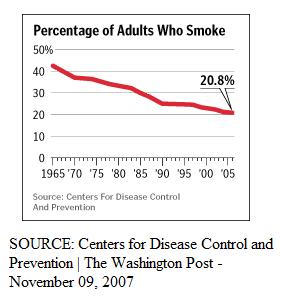
You know, it’s odd but have you noticed that the instances of asthma having been going up and up and up as the number of smokers goes down and down, even as pollution goes down in urban air too? Weird, eh?
I’m not saying I have the answer here. Probably need to do studies. Hire guys to do math and verify stuff. Let the lobbyists that represent the helmet manufacturers and cigarette companies argue against the lobbyists working for the career charity CEOs, the guys who build charity industries that just keep getting bigger and more permanent despite working very hard to, in theory, eliminate the very thing that keeps them in their fancy homes and country club memberships.
I’m just saying that maybe the “advertising” model isn’t the optimal model. Maybe we need to rethink the paradigm a bit. Smarter people than I am can make suggestions. Maybe we just need to stop. Maybe swap a few drunk driver deaths for some diabetes deaths. Sacrifice a few people to get tens of thousands of thirty-year-old assletes out of their parent’s basements and into a job, into life. Spend a little time swinging decision making back towards the macro level instead of catering to the micro, work on the global over the local, just a little. I know, it’s easy to say that, to consider theoretical ideas… until it’s someone I love that dies. Then I’ll sing a different tune. It’s true. So, I guess we should just stay afraid.
Or not.
I don’t think humans are supposed to live in fear. Renaming it “caution” doesn’t change the nature of what it is. Each argument for safety on its own is probably a good idea; each individual story very sad. But the net effect is neutering our kids.
Works Cited (those that weren't linked in text)
Finkelhor, David, Gerald Hotaling, and Nancy Asdigian. "Attempted Non-Family Abductions." Child Welfare 74.5 (1995): 941-955. Academic Search Premier. EBSCO. Web. 22 May 2010. http://content.ebscohost.com.proxy.lib.csus.edu/pdf9/pdf/1995/CWF/01Sep95/24227362.pdf?T=P&P=AN&K=24227362&EbscoContent=dGJyMNHX8kSeqLA4y9f3OLCmr0iep7NSsKq4TK%2BWxWXS&ContentCustomer=dGJyMPGqr0qurLRJuePfgeyx%2BEu3q64A&D=aph
Kaufman, Mark. “Decades-Long U.S. Decrease in Smoking Rates Level Off.” The Washington Post. 9 Nov, 2007. 22 May, 2010. http://www.washingtonpost.com/wp-dyn/content/article/2007/11/08/AR2007110801094.html
Munch, Edvard. The Scream. 1893. National Gallery, Oslo. Wikipedia, the Free Encyclopedia. 20 May, 2010. 22 May, 2010. http://upload.wikimedia.org/wikipedia/en/thumb/f/f4/The_Scream.jpg/220px-The_Scream.jpg
A funny movie about the difference between being safe and being alive.
Do we over-protect our children?
More Work from Shadesbreath
- Plant Racism: Hatred in the Garden and the Humans Who Condone It
Taking a stand against racism. The defense of the defenseless living things that have no voice of their own, cut down in the prime of life across the U.S. and nobody says a thing. YOU are complicit too! - Washboard Vlad
On the lighter side, a satirical look at stereotypes, women, vampires, romance and the vampire and romance genres.
HubMob RSS

